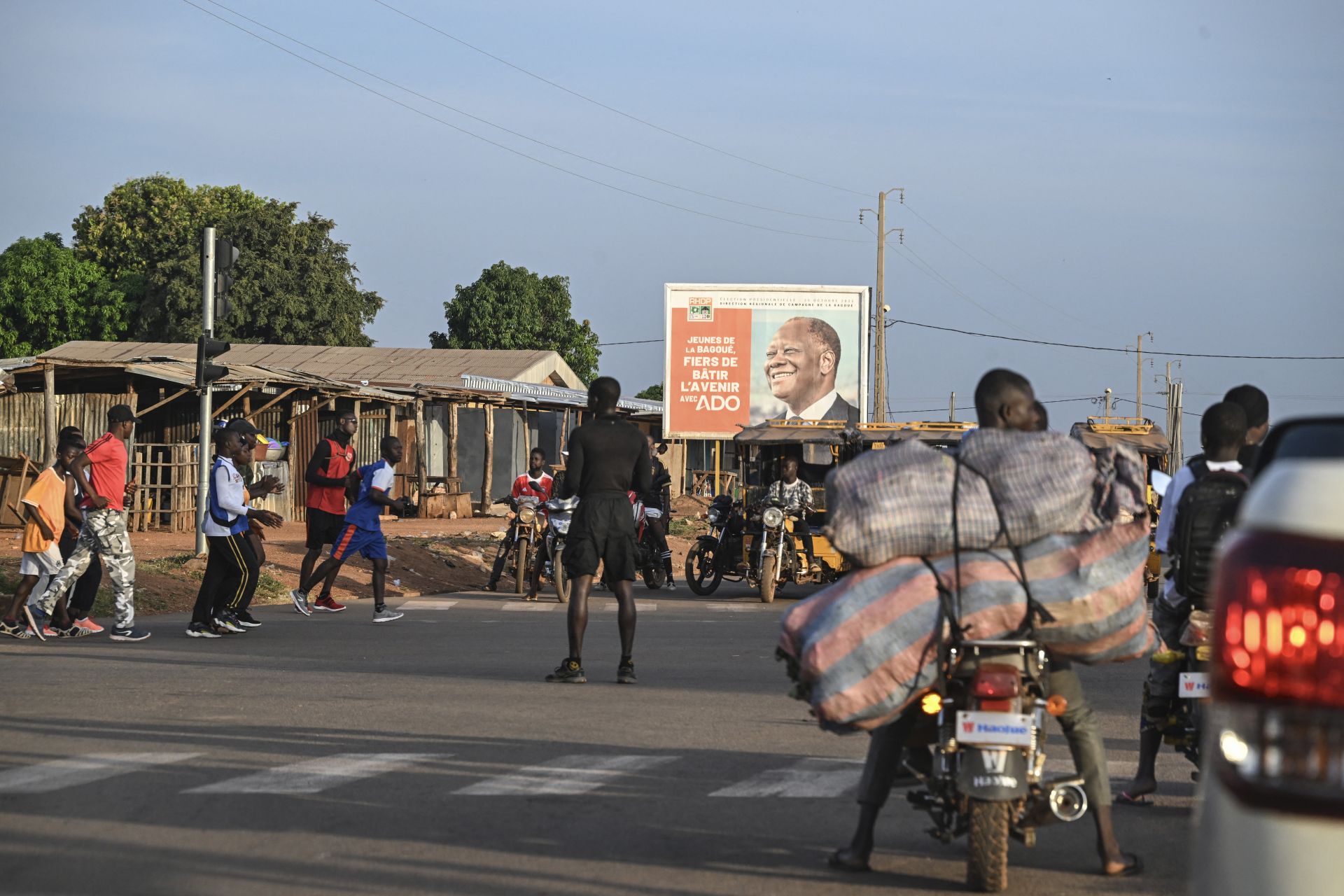- Home
- Middle East
- Mali's JNIM Jihadists: Armed Fighters or Politically Ambitious Belligerents?

JNIM jihadists, affiliated with Al-Qaeda, are pursuing a strategy of economic strangulation in Mali, disrupting electricity, transportation, and schools, while fuel convoys arrive sporadically and the international community warns of the situation. ©Issouf Sanogo / AFP
By waging an economic blockade and conducting attacks on fuel convoys, the jihadist group JNIM has made itself the arch nemesis of Mali's junta, weakening the country's central government in an unprecedented manner.
The Al-Qaeda-linked Group for the Support of Islam and Muslims, as it is formally known, is the "most significant threat in the Sahel", according to the United Nations.
But what does the group want and who is behind it?
Vague numbers
JNIM, which is actively extending its influence throughout the Sahel, formed in 2017 when several jihadist factions merged, including the Al-Qaeda-affiliated Katiba Macina.
The group's head, Iyad Ag Ghaly, is a Tuareg leader from Kidal, Mali, near the Algerian border.
It is difficult to estimate the number of fighters in JNIM's ranks, but according to the Dakar-based Timbuktu Institute think tank, Katiba Macina alone has between 5,000 and 8,000 men.
"A lot of JNIM combatants probably go in and out. They are part-time", Michael Shurkin, the director of global programs at 14 North Strategies and a former CIA agent, told AFP.
Expansion towards south, west
The group, which initially formed in the north of the country, has extended its influence in recent months across a large swath of Malian territory, particularly in the south and west.
The toll from JNIM attacks this year alone had already reached 2,100 deaths as of November 7, an annual record according to an AFP analysis of data available since 2019 from the NGO ACLED.
The group's activity in the southern half of the county has also been unprecedented, with 271 attacks since September alone.
In August, JNIM intensified its deadly raids on the Kayes region of western Mali, a particularly strategic area for the group because it provides approximately 80 percent of Mali's gold production, according to the Soufan Center think tank.
The Kayes region, which borders Senegal, Mauritania and Mali, is also crucial for the delivery of food and fuel to Mali, which lacks direct access to the sea.
JNIM indirectly governs villages via agreements tailored to different localities, claiming in its propaganda to be defending the local populations.
"This is not (the waging of) permanent physical control over a territory, but rather done via rules they establish and taxes they collect," Fahiraman Rodrigue Kone, the Sahel project manager at the Institute for Security Studies (ISS), told AFP.
'Logic of terror'
JNIM has begun to "adopt the guise of an increasingly political movement," Bakary Sambe of the Timbuktu Institute told AFP.
"It presents itself as an organization seeking to protect marginalized groups" against what it says is the failure of political elites and abuses by the Malian army and its Russian mercenaries, Sambe said.
"JNIM operates according to a logic of terror, giving itself the right to attack those who directly oppose its ideology", he added.
Two weeks ago in the central town of Lere, for example, the group killed at least 14 civilians it suspected of collaborating with the Malian army.
What does JNIM want?
One of JNIM's driving goals is the establishment of sharia, the Islamic legal code.
The jihadists have additionally imposed new rules on travelers, requiring separation of men and women particularly on public transportation, and requiring women to wear veils.
But overall, its objectives remain unclear.
The possibility of JNIM taking Bamako, Mali's capital with a population of nearly three million, seems unlikely at this stage according to observers, as the jihadists lack military or governance capabilities.
"Nobody really knows for sure what JNIM intends to do", Shurkin of 14 North Strategies said. "Are they intending to collapse the Malian government, to take over Bamako, or to just make it irrelevant?"
"It's an evolving objective", Kone of ISS added. "We see that this objective is becoming increasingly political."
Colossal ransom
JNIM has numerous funding streams, including ransoms from kidnappings, especially of Westerners. It also participates in theft and resale of livestock and collects "zakat", an Islamic tax.
Two weeks ago the jihadists were paid $50 million for the release of an Emirati hostage and his Pakistani and Iranian associates, an unprecedented and colossal financial windfall in one of the poorest countries in the world.
"With this ransom, I believe there will be a strategic boost," Sambe of the Timbuktu Institute said.
"Whatever they want at this point, I don't see why they won't get it sooner or later," Shurkin added. "I don't think that the Malian government has the ability to reverse this."
By Eléonore SENS/AFP
Read more



Comments